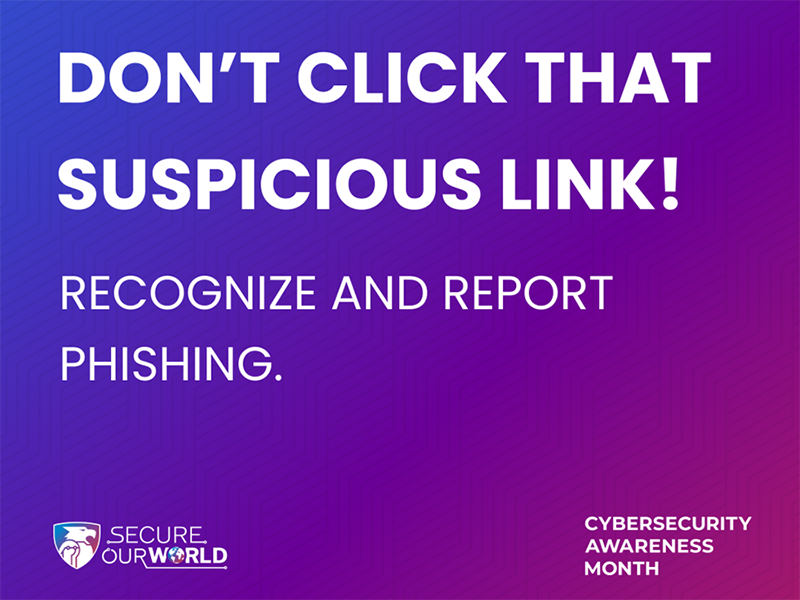The ability to identify email scams is crucial to safeguarding personal information. Phishing is a type of email scam where fraudulent emails, messages or websites are used to deceive individuals into revealing sensitive information such as passwords, credit card numbers or social security numbers. These emails often appear legitimate and may mimic trusted organizations. Here are key things to look for when checking an email:
-
Sender's Email Address: Check the sender's email address carefully. Scammers often use email addresses that resemble legitimate ones but have slight variations or misspellings.
-
Urgent or Threatening Language: Phishing emails often create a sense of urgency or fear to prompt quick action. Be cautious of emails demanding immediate responses or threatening consequences for not complying.
-
Suspicious Links: Hover over any links in the email (without clicking) to preview the URL. Check if the URL matches the organization it claims to be from. Be wary of shortened URLs or links that lead to unusual or unexpected web addresses.
-
Requests for Personal Information: Legitimate organizations typically do not ask for sensitive information such as passwords, social security numbers or credit card details via email. The U of A will NEVER ask for account passwords, MFA codes or other sensitive information.
-
Poor Grammar and Spelling: Phishing emails often contain grammatical errors, spelling mistakes or awkward language. Professional organizations usually have polished communications.
Never click on links in phishing emails or suspicious messages. Phishing emails should be reported using the Report Message button in Outlook. For more information about phishing and to view a real-world example, visit the Cybersecurity Checklist.
National Cybersecurity Awareness Month: October is National Cybersecurity Awareness Month! This month, we're highlighting the importance of staying safe online. Whether you're a tech expert or just browsing the web, everyone can take simple yet powerful steps to protect themselves and strengthen our campus community's digital security. For more tips and resources, check out the IT Services Cybersecurity Checklist or visit the Cybersecurity & Infrastructure Security Agency (CISA).
Topics
Contacts
Ele Powell, digital content strategist
Division of Finance and Administration
479-718-1918,
